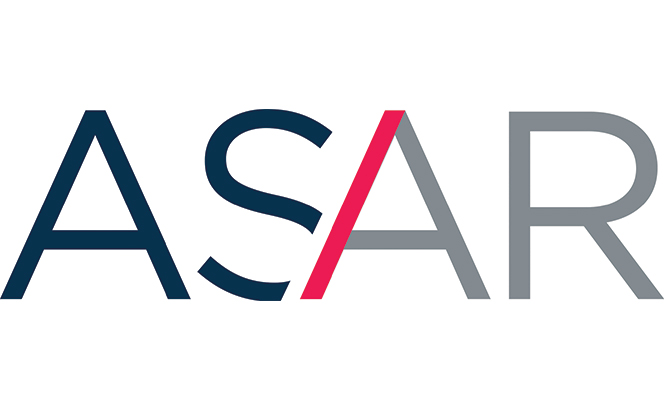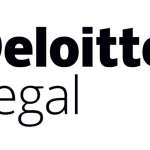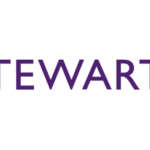1. What types of banking and finance law cases do you typically handle in Kuwait?
Typical cases include debt recovery, fraud and financial crimes, contractual disputes, dispute resolution, and banking regulations.
2. How do banking and finance laws in Kuwait differ from those in other Gulf Cooperation Council (GCC) countries?
All banks operating within Kuwait are subject to the supervision of the Central Bank of Kuwait (CBK), while the Kuwait Capital Markets Authority exercises supervisory authority over all Kuwaiti entities (including banks and financial institutions) which are listed on Boursa Kuwait or engage in ‘Securities Activities’ in Kuwait (as defined in the Kuwait Capital Markets Law and the Bylaws thereto). Kuwait is a member of the GCC, and as such a member it shares certain similarities in banking and finance laws with other GCC countries. As always, however, there are variations and nuances which are specific to Kuwait and, among others, relate to items such as regulatory frameworks, capital requirements, anti-money laundering, investor protection, and listing and trading.
3. Can you explain the impact of Sharia law on Kuwait’s banking and finance sector?
Kuwait follows the civil law system. The Kuwaiti Constitution of 1962 provides for an independent judiciary, and Law No.19 of 1959 (amended in Law No. 19 of 1990) regulates the organisation and functioning of the judiciary. The legal system comprises the Civil Code, the Commercial Code, the Penal Code, and the Code of Criminal Procedure, contained in Law No. 17 of 1960. However, Article 2 of the Constitution provides that Islamic Sharia forms a major source of legislation, but it does not prescribe for the strict adherence to the principles of Sharia.
4. How have recent changes or updates in Kuwaiti law affected banking and finance operations?
The CBK introduced a regulatory framework for fintech companies. Kuwait also passed the Electronic Transactions Law, which recognised the legal validity of electronic transactions and provided a framework for electronic signatures, documents, and communications. In addition, amendments have been introduced into the Kuwait companies law, which included provisions related to corporate governance, transparency, and disclosure requirements for companies operating in Kuwait.
5. How does the Central Bank of Kuwait’s regulation affect day-to-day banking operations and how do you, as a lawyer, navigate these regulations?
- Compliance – The CBK regulations, instructions and directives set out specific requirements with which banks and financial institutions (under its supervision) must be in compliance with at all times.
- Licensing and registration – The CBK regulates the licensing and registration of banks and financial institutions (under its supervision) in Kuwait.
- Prudential regulations – The CBK establishes prudential regulations that regulate aspects such as capital adequacy, liquidity management, credit risk, concentration risk, interest rate caps, corporate governance etc.
- Consumer protection – The CBK places importance on consumer protection in the banking sector. It issues regulations and guidelines to safeguard the rights of customers and ensure fair practices by banks.
- Anti-Money Laundering (AML) and Combating the Financing of Terrorism (CFT) – The CBK enforces AML and CFT regulations to prevent illicit financial activities.
- Enforcement actions and disputes – In case of regulatory violations or disputes involving the CBK, lawyers may represent clients in regulatory investigations, enforcement actions, and disputes resolution procedures.
6. Can you explain the process of starting a new banking institution in Kuwait? What legal obstacles might one expect to encounter?
Kuwaiti banks should all take the form of a Kuwait joint stock company (KSC). The share capital required to incorporate a bank is KD 75 million. If an entity wishes to acquire more than 5% of the share capital of a Kuwait bank, it requires the approval of the CBK prior to such acquisition. Indeed, according to Article 57(2) of the Kuwait Banking Law, the direct and indirect ownership of a single entity in a Kuwaiti Bank shall not exceed 5% of the bank’s capital. The share capital required for a branch of a foreign bank is much less (KD 15 million) and there are no shareholding restrictions. Before it can obtain a commercial licence from the Ministry of Commerce and Industry, a bank needs to obtain a banking licence from the CBK. The CBK licence is obtained after the Ministry of Finance approves the application of a bank. A bank cannot start providing services until it is registered in the Register of Banks at the CBK. Legal obstacles one may encounter when starting a banking in Kuwait include, a) a complex regulatory environment, b) capital requirements, and c) the appetite for the CBK to allow new banks to be established in Kuwait etc.
7. How are disputes typically resolved in banking and finance cases? Are they often settled out of court, or do they usually go to trial?
Banking and finance disputes in Kuwait are capable of being resolved through various methods, including both out-of-court settlements and court proceedings. The specific approach depends on the nature and complexity of the dispute, as well as the commercial preferences of the parties involved. Some of the common methods of resolving banking and finance disputes in Kuwait include the following: negotiation and settlement; mediation; arbitration; and litigation. Ultimately, the choice between settling out of court or going to trial depends on factors such as the complexity of the dispute, the desired outcome of the parties, the legal merits of the case, and the costs and time involved in each option.
8. How do you handle cases of alleged financial misconduct or fraud? What legal remedies are typically pursued?
Such matters are typically handled through the Kuwait court system. The primary legislation governing financial crimes and fraud in Kuwait is the Kuwait Penal Code Law No. 31 of 1970). This law outlines the powers and responsibilities of the Public Prosecution in investigating and prosecuting criminal offences, including financial crimes. When a case of alleged financial misconduct or fraud is reported, the Public Prosecution initiates an investigation to gather evidence and determine whether there are sufficient grounds to proceed with a criminal case. The investigation may involve collecting documents, interviewing witnesses, and conducting forensic audits, among other methods. If the Public Prosecution finds evidence to support the allegations, it may file criminal charges against the accused individuals or entities. The case is then referred to the appropriate court, generally the criminal court, where the legal proceedings take place. During the trial,both the prosecution and defence present their arguments and evidence. The court examines the evidence, hears witness testimonies, and considers legal arguments before reaching a verdict. If the court finds the accused guilty of financial misconduct or fraud, it will impose appropriate penalties, which may include fines, imprisonment, or both, depending on the severity of the offence. In addition to the criminal proceedings, victims of financial misconduct or fraud may pursue civil remedies to seek compensation for any damages they have suffered.
9. In light of the global economic situation and its impact on Kuwait’s economy, what trends or changes do you anticipate in banking and finance laws?
Some of the anticipated trends and changes in banking and finance laws include, among others, the following: increased regulatory scrutiny; further digital transformation and fintech integration; focus on cyber security and data protection; sustainable finance and ESG considerations; and international regulatory co-operation.
10. What would be your approach to a case where international banking laws conflict with Kuwaiti laws? How would you navigate such a situation?
Clearly identify the areas of conflict and understand the nature and extent of the differences. Specialist legal counsel from both Kuwait and the relevant foreign jurisdiction would need to be obtained so as to evaluate the conflict, interpret relevant laws, and provide guidance on the potential implications. The hierarchy of laws and legal frameworks also requires analysis. This process would include the determining of whether or not there are any international agreements, treaties, or conventions that may provide a basis for resolving conflicts between international and Kuwaiti law. Specific to Kuwait, it will also be important to understand the positions and requirements of relevant regulatory authorities in Kuwait (eg, those issued by the CBK), as this will aid in the determining of their stance on conflicts between international and domestic laws. It would also be helpful to develop strategies to mitigate the conflict and align with both international and Kuwaiti laws to the extent possible. This may involve engaging in dialogue with regulatory authorities and seeking their guidance or approval, structuring transactions.
For more information contact:

Sam Habbas
Senior partner
E: shabbas@asarlegal.com

Rob Little
Counsel
E: rlittle@asarlegal.com

John Cunha
Partner
E: jcunha@asarlegal.com














